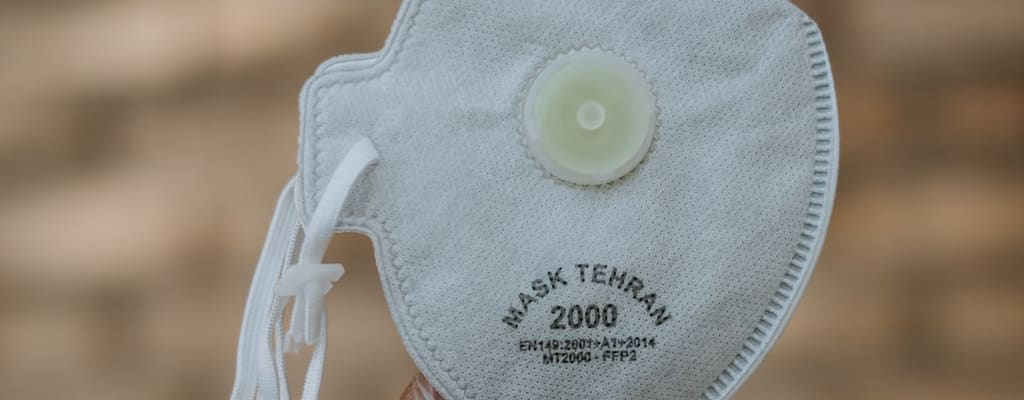dishpan hands: Idiom Meaning and Origin
What does ‘dishpan hands’ mean?
The idiom "dishpan hands" refers to having dry and rough skin on the hands, typically caused by constantly washing dishes in hot water without wearing gloves.

Idiom Explorer
The idiom "hot water" refers to being in a difficult or troublesome situation, often due to one's own actions or decisions.
The idiom *hot hand* refers to a streak or period of success or good fortune. It is often used in sports to describe a player who is performing exceptionally well for a certain period of time.
The idiom "have one's hands full" means to be very busy or have a lot of work or responsibilities to deal with.
The idiom "have a hand in" means to be involved or to play a part in something.
The idiom "hand in one's dinner pail" means quitting or giving up, often in the context of work or a task. It originates from when workers used to bring their own pail of food to eat during their shift, and handing in the pail symbolized leaving the job.
The idiom "hand-to-mouth" means living in a state of poverty or scarcity, barely being able to meet one's basic needs for survival.
The idiom "hand to mouth" means living in poverty or a state of financial insecurity, where one is barely able to meet their basic needs.
The idiom "hand over hand" means to climb or move upward using both hands alternately, usually in a steady and controlled manner.
The idiom "gouty-handed" is used to describe someone who has unsteady or clumsy hands, often due to a medical condition like gout. It implies a lack of dexterity or finesse in tasks that require manual skill.
The idiom "go down the pan" means to fail or deteriorate significantly.
Origin Unveiled
Dishpan hands is an idiomatic expression commonly used in the United States. The term refers to hands that are rough, dry, and cracked due to prolonged exposure to water or harsh chemicals, often from washing dishes by hand. The term is derived from the combination of the words "dishpan," which refers to a basin or container used for washing dishes, and "hands," which refers to the body part at the end of each arm.
The idiom emphasizes the negative physical effects that can occur as a result of repetitive and prolonged tasks involving the hands. Dishpan hands signify not only the roughness and dryness of the skin but also the potential discomfort and pain that can accompany such conditions. The idiom is often used metaphorically to describe any situation or profession that involves strenuous handwork or repetitive tasks, causing damage or discomfort.
The origin of the idiom can be traced back to the mid-20th century in the United States, a period when more households relied on manual dishwashing without the aid of dishwashers. Washing dishes by hand was a common household chore, particularly in situations where dishwashers were not available or affordable. The term "dishpan hands" gained popularity during this time as individuals began to notice the detrimental effects of prolonged contact with water, soap, and cleaning agents.
The idiom became a familiar reference in American households, often used in a teasing or derogatory manner to describe someone's rough or damaged hands. The term found its way into popular culture, including literature, movies, and television shows, further solidifying its presence in everyday language.
The use of the term "dishpan hands" extends beyond its literal meaning, finding relevance in various professional fields where hands-on labor or repetitive tasks are required. Occupations such as those in the culinary industry, healthcare, construction, and manufacturing can result in individuals developing dishpan hands due to the constant exposure to water, cleaning agents, or abrasive materials.
The idiom carries a symbolic significance related to the value of hard work and dedication. It serves as a reminder that certain tasks, particularly menial chores, can lead to visible signs of physical wear and tear, reflecting the effort and commitment put into completing such tasks. Dishpan hands, then, becomes a symbol of the sacrifices and labour required to maintain cleanliness and order.
One related idiom is "gouty-handed." This phrase describes hands that are swollen, red, and painful due to gout, a form of arthritis caused by the buildup of uric acid crystals. While dishpan hands may not always be a result of gout, the idiom highlights the discomfort and pain that can accompany hand-related ailments.
In addition to gouty-handed, the idiom "all thumbs" is another expression closely related to dishpan hands. Being "all thumbs" means to be clumsy or awkward, especially when it comes to tasks that require manual dexterity. This idiom highlights the opposite of having smooth and nimble hands, further emphasizing the negative effects of prolonged handwork.
Another related idiom is "have one's hands full." This phrase means to be very busy or overloaded with tasks or responsibilities. When someone has their hands full, they are fully occupied and may not have the time or energy to properly take care of their hands. This can lead to neglect and the development of dishpan hands.
Lastly, the idiom "catch hands" can also be associated with dishpan hands. "Catch hands" refers to a situation where someone gets their hands dirty or becomes involved in a messy or challenging task. This idiom underscores the idea that certain tasks or professions can result in the development of dishpan hands due to the demanding nature of the work.
While the idiom has been widely used and recognized for many years, advancements in technology have reduced the prevalence of dishpan hands in modern society. The invention and widespread use of dishwashers have significantly decreased the need for manual dishwashing, sparing individuals from the potential detrimental effects on their hands.
Nevertheless, dishpan hands remain a relatable idiom that encapsulates the physical toll of repetitive tasks, underscoring the importance of self-care and the need for balance in one's endeavors. It serves as a reminder of the physical consequences that can arise from neglected caring for one's hands and the enduring nature of certain idiomatic expressions in capturing human experiences and emotions.
Example usage
Examples of how the idiom "dishpan hands" can be used in a sentence:
1. After washing dishes all day, she had a pair of dishpan hands.
2. Her rough skin and dry fingertips were clear signs of dishpan hands.
3. The constant exposure to hot water and detergent gave him a case of dishpan hands.
More "Hygiene" idioms



